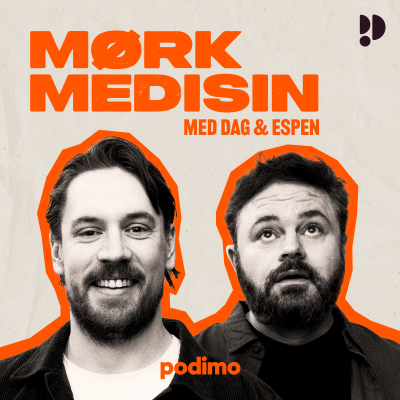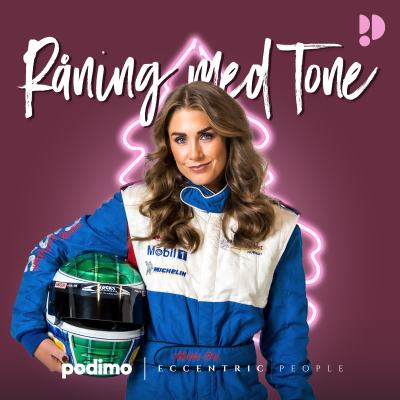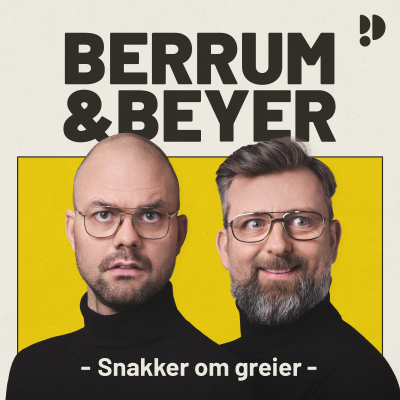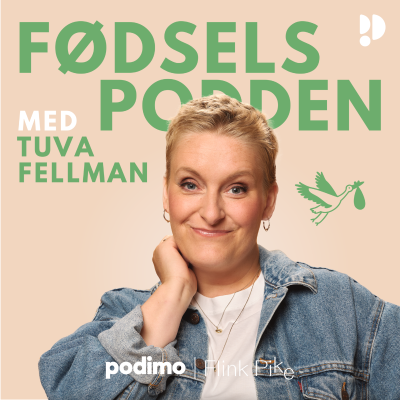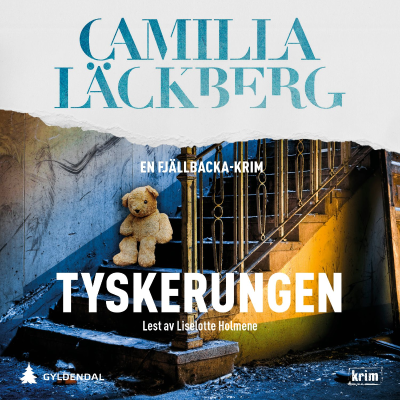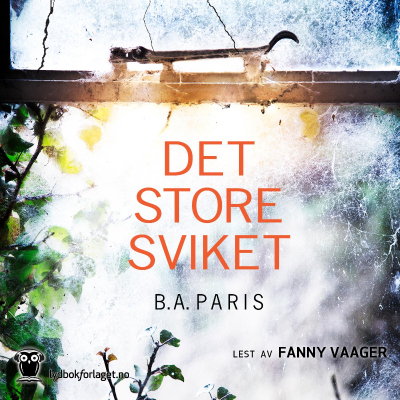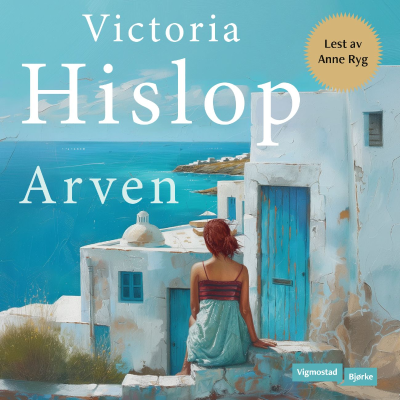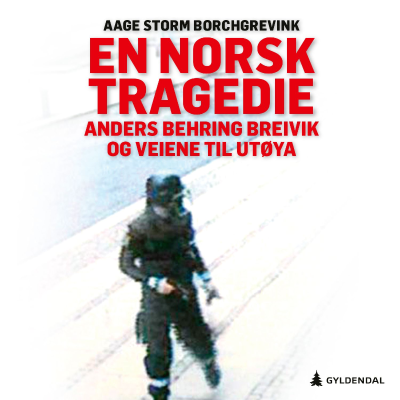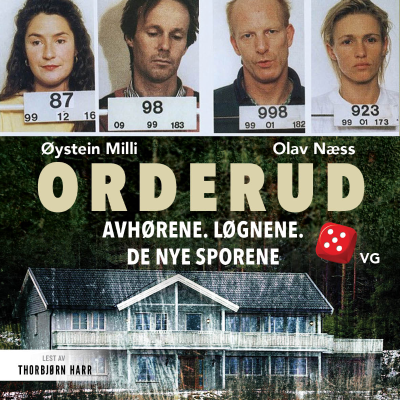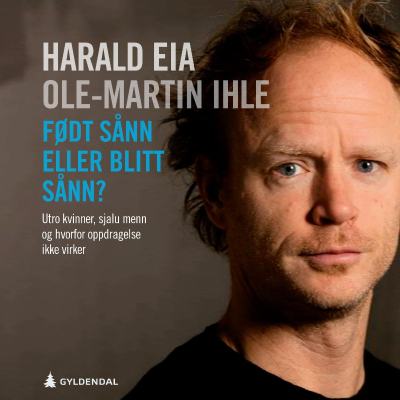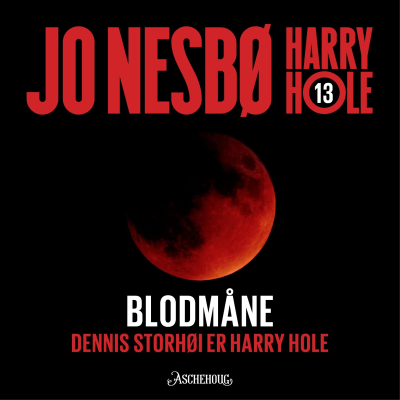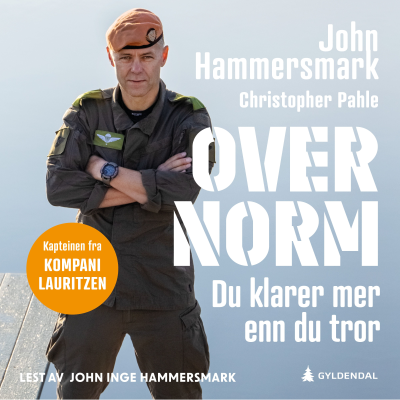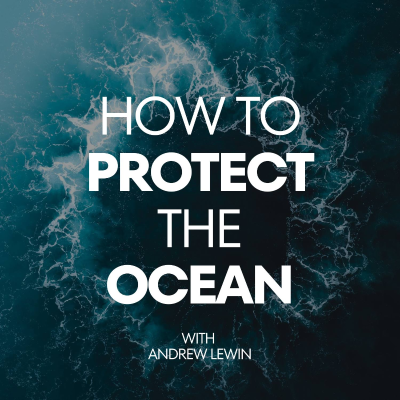
How To Protect The Ocean
Podkast av Andrew Lewin
Tidsbegrenset tilbud
2 Måneder for 19 kr
Deretter 99 kr / MånedAvslutt når som helst.

Mer enn 1 million lyttere
Du vil elske Podimo, og du er ikke alene
Rated 4.7 in the App Store
Les mer How To Protect The Ocean
Dive into the Depths: Join Andrew Lewin on 'How to Protect the Ocean' – Your Gateway to Exclusive Ocean Insights! Explore the latest, uncharted realms of ocean science and conservation that you won't find anywhere else. Andrew takes you on an inspiring journey to uncover the hidden gems of oceanic discovery and initiatives. Tune in to discover how you can transform your life for a better ocean, one episode at a time. The How To Protect The Ocean is your resource to keep you informed on the latest ocean news; teach you how to speak up for the ocean; and, how you can take action to live for a better ocean. There is so much information on the ocean and the issues that are affecting it that it can be difficult to find optimism in the future of the ocean. Climate change, overfishing, plastic pollution, water pollution, and coastal development have altered the ocean in ways that have negatively changed the way we use it. The repercussions of climate change, including the ominous specter of rising sea levels, the relentless march of warming ocean temperatures, and the ominous shadow of ocean acidification, have not only altered the very fabric of our coastlines but have also conjured fiercer storms and summoned floods with growing frequency. The fossil fuel industry may whisper in your ear that the situation is insurmountable, an inescapable fate. However, this podcast is here to unveil a different narrative, one that empowers you to take action. It illuminates the path to change by casting your vote for leaders committed to implementing climate-rescuing policies and by offering invaluable insights into how each of us can shrink our individual carbon footprint. The grim reality of overfishing casts a long shadow, fueled by governmental shortcomings in the stewardship of both commercial and recreational fisheries. Within the delicate balance of our oceans, every fish population possesses a threshold - a point at which the relentless harvest of fishermen begins to erode their numbers. The management of these aquatic resources is a formidable task, as the elusive currents of the sea often defy easy tracking. Furthermore, the menace of illegal, unregulated, and unreported (IUU) fishing looms large in many nations, adding to the crisis. Yet, a glimmer of hope shines through the depths. A beacon for responsible consumption emerges in the form of seafood programs, guiding conscientious individuals toward choices that safeguard our oceans. By heeding these programs, you not only savor the delights of sustainable seafood but also become an informed guardian of marine ecosystems. The relentless scourge of plastic pollution has unleashed an epidemic of death upon the denizens of our oceans. It's a ruthless killer, claiming the lives of hundreds of thousands of marine mammals, majestic sharks, grandiose fish, gentle sea turtles, and the graceful sea birds that soar above. The malevolence of this crisis knows no bounds, with microplastics infiltrating even the remotest depths of the ocean and etching their presence along every coastline. To mount a defense against this ecological cataclysm, the clarion call for action echoes on the international and national stages. It beckons governments far and wide to adopt resolute policies, wielding the power to outlaw the menace of single-use plastics and demanding the meticulous detoxification of our supply chains. In this grand battle to safeguard our seas, the fight against plastic pollution knows no borders. The ominous specter of water pollution looms large, a consequence of our thoughtless disposal into the arteries of our planet – our streams, rivers, lakes, and oceans. This callous act reverberates, sending shockwaves through the intricate ecosystems of our coastal havens, where the likes of coral reefs, resilient mangroves, and swaying seagrasses thrive. But alas, this intrusion is not benign; it bears the capacity to corrode and dismantle these vital sanctuaries, the very lifeblood of countless fish and the steadfast guardians of our vulnerable shorelines. Yet, amidst the unsettling tide of pollution, there emerges a ray of hope. Through individual resolve and visionary government policies harnessed with cutting-edge technology, we can stem this toxic deluge. Water treatment systems stand as stalwart guardians, armed with the ability to sift out the insidious nutrients that fuel destructive algal blooms. The power to heal our waters and preserve the sanctity of our coastal treasures lies within our grasp. Coastal development, driven by human desires to construct homes or fortify the shoreline against erosion, represents a significant intervention in the natural order. Yet, these changes, while initially confined to the coastal zone, often send ripple effects that extend far beyond their original boundaries, casting a shadow of unintended consequences. The repercussions of altering coastlines resonate through interconnected ecosystems, occasionally triggering a cascade of events that can inflict profound harm on distant areas. In doing so, this well-intentioned transformation can unwittingly imperil the lives and livelihoods of communities residing in the wake of its impact. It is a stark reminder that our actions along the coast carry a profound responsibility, not just to the immediate environment but to the greater web of life and society that depends upon it.
Alle episoder
1798 EpisoderHow 5 billion sea stars died is a story that shook marine ecosystems along North America’s Pacific coast. This episode dives into the groundbreaking discovery of the bacterium Vibrio pectenicida, the pathogen responsible for sea star wasting disease, which decimated up to 90% of sunflower sea stars. We explore how the loss of these predators caused sea urchin populations to explode, leading to widespread kelp forest destruction, and what new recovery strategies—such as captive breeding, probiotics, and climate monitoring—could mean for the species and the habitats they support. By understanding the science and the solutions, we can help restore balance to one of the ocean’s most important coastal ecosystems. Link to article: https://www.nytimes.com/2025/08/04/science/sea-stars-disease-vibrio-pectenicida.html [https://www.nytimes.com/2025/08/04/science/sea-stars-disease-vibrio-pectenicida.html] Join the Undertow: https://www.speakupforblue.com/jointheundertow [https://www.speakupforblue.com/jointheundertow] Connect with Speak Up For Blue Website: https://bit.ly/3fOF3Wf [https://bit.ly/3fOF3Wf] Instagram: https://bit.ly/3rIaJSG [https://bit.ly/3rIaJSG] TikTok: https://www.tiktok.com/@speakupforblue [https://www.tiktok.com/@speakupforblue] Twitter: https://bit.ly/3rHZxpc [https://bit.ly/3rHZxpc] YouTube: www.speakupforblue.com/youtube [https://www.speakupforblue.com/youtube]
Scientist Identifies New Manta Ray Species—the Atlantic Manta Ray, Mobula yarae—in a groundbreaking announcement from Dr. Andrea Marshall and her team at the Marine Megafauna Foundation. In this episode, Andrew Lewin shares the story of how Dr. Marshall, already renowned for identifying two distinct manta species in 2009, confirmed a long-suspected third species after years of meticulous observation, genetic analysis, and global collaboration. Listen to this remarkable story of how this new species was first spotted off the Yucatán Peninsula, how it differs from other mantas, and why its recognition is a crucial win for marine conservation. Andrew also reflects on the significance of species discovery for protecting vulnerable marine life and the importance of scientific persistence in the face of challenges. Link to Article: https://marinemegafauna.org/news/third-manta-ray-species-mobula-yarae-discovered-in-atlantic-ocean [https://marinemegafauna.org/news/third-manta-ray-species-mobula-yarae-discovered-in-atlantic-ocean] Join the Undertow: https://www.speakupforblue.com/jointheundertow [https://www.speakupforblue.com/jointheundertow] Connect with Speak Up For Blue Website: https://bit.ly/3fOF3Wf [https://bit.ly/3fOF3Wf] Instagram: https://bit.ly/3rIaJSG [https://bit.ly/3rIaJSG] TikTok: https://www.tiktok.com/@speakupforblue [https://www.tiktok.com/@speakupforblue] Twitter: https://bit.ly/3rHZxpc [https://bit.ly/3rHZxpc] YouTube: www.speakupforblue.com/youtube [https://www.speakupforblue.com/youtube]
Climate Crisis and Capitalism are at the heart of David Suzuki’s powerful message in this episode. In a candid and impassioned reflection, Suzuki warns that if we continue to prioritize politics and the economy over protecting the environment, we may as well give up on climate action. He challenges the cultural obsession with perpetual economic growth, critiques the short-sightedness of political cycles, and urges a fundamental shift in our collective priorities. David Suzuki’s call for transformation is both urgent and inspiring. He advocates for placing the environment at the center of all decision-making, recognizing that our survival depends on living within ecological limits. Drawing on decades of experience as a scientist, broadcaster, and environmental activist, Suzuki encourages individuals to embrace systems thinking, reevaluate their relationship with nature, and demand more from leaders who treat the planet as expendable. This is a wake-up call that goes beyond environmentalism—it’s a call for a radical reimagining of our future. Join the Undertow: https://www.speakupforblue.com/jointheundertow [https://www.speakupforblue.com/jointheundertow] Connect with Speak Up For Blue Website: https://bit.ly/3fOF3Wf [https://bit.ly/3fOF3Wf] Instagram: https://bit.ly/3rIaJSG [https://bit.ly/3rIaJSG] TikTok: https://www.tiktok.com/@speakupforblue [https://www.tiktok.com/@speakupforblue] Twitter: https://bit.ly/3rHZxpc [https://bit.ly/3rHZxpc] YouTube: www.speakupforblue.com/youtube [https://www.speakupforblue.com/youtube]
Map the Deep Sea to protect what we don’t yet understand. In this episode, Andrew Lewin speaks with Tim Kearns from Map the Gaps, a global initiative working to close the knowledge gap beneath the waves. With over 75% of the seafloor still unmapped in high resolution, the ocean remains Earth’s final frontier—and unlocking its secrets is essential for biodiversity, disaster planning, and climate action. Ocean mapping is more than bathymetry. It’s a tool for social justice, environmental stewardship, and informed decision-making. Tim shares how Map the Gaps supports small island nations, Indigenous communities, and global science efforts through collaboration and cutting-edge technology. From an exploration policy perspective, this conversation makes a clear case: mapping the deep sea is the foundation for a sustainable ocean future. Website: https://www.mapthegaps.org/ [https://www.mapthegaps.org/] Map the Gaps Website: https://www.mapthegaps.org/symposium [https://www.mapthegaps.org/symposium] Join the Undertow: https://www.speakupforblue.com/jointheundertow [https://www.speakupforblue.com/jointheundertow] Connect with Speak Up For Blue Website: https://bit.ly/3fOF3Wf [https://bit.ly/3fOF3Wf] Instagram: https://bit.ly/3rIaJSG [https://bit.ly/3rIaJSG] TikTok: https://www.tiktok.com/@speakupforblue [https://www.tiktok.com/@speakupforblue] Twitter: https://bit.ly/3rHZxpc [https://bit.ly/3rHZxpc] YouTube: www.speakupforblue.com/youtube [https://www.speakupforblue.com/youtube]
Ocean Books can do more than entertain—they can inspire action, hope, and a fresh way of thinking about climate change. In this episode, Todd Medema introduces his new novel, How to Surf a Hurricane, a solarpunk heist that imagines a near-future world adapting to climate change. Todd and Andrew Lewin explore how fiction can shift the narrative from doom to determination, showing how communities can come together to protect nature and build a better future. Solarpunk climate fiction takes center stage in the second half of the conversation. Todd shares his journey from clean energy and political advocacy to storytelling, describing the writing process, the publishing hurdles, and how his background shaped the world he built. This episode is for anyone who wants to see climate action through a more creative, hopeful lens. Website: https://howtosurfahurricane.com/ [https://howtosurfahurricane.com/] Join the Undertow: https://www.speakupforblue.com/jointheundertow [https://www.speakupforblue.com/jointheundertow] Connect with Speak Up For Blue Website: https://bit.ly/3fOF3Wf [https://bit.ly/3fOF3Wf] Instagram: https://bit.ly/3rIaJSG [https://bit.ly/3rIaJSG] TikTok: https://www.tiktok.com/@speakupforblue [https://www.tiktok.com/@speakupforblue] Twitter: https://bit.ly/3rHZxpc [https://bit.ly/3rHZxpc] YouTube: www.speakupforblue.com/youtube [https://www.speakupforblue.com/youtube]

Rated 4.7 in the App Store
Tidsbegrenset tilbud
2 Måneder for 19 kr
Deretter 99 kr / MånedAvslutt når som helst.
Eksklusive podkaster
Uten reklame
Gratis podkaster
Lydbøker
20 timer i måneden

